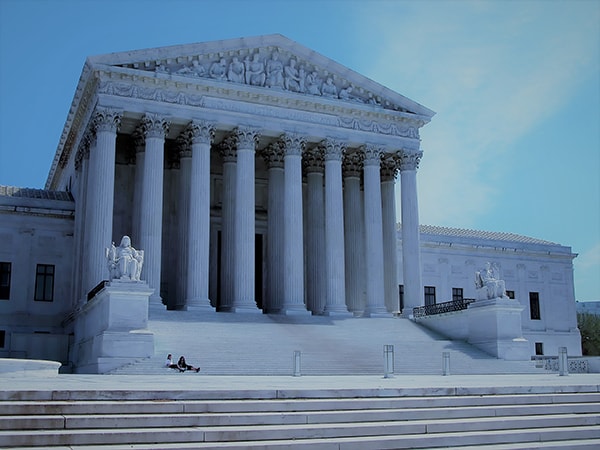Relied On Federal Crime Attorney: Comprehensive Defense Versus Federal Allegations
Relied On Federal Crime Attorney: Comprehensive Defense Versus Federal Allegations
Blog Article
Demystifying the Refine of Federal Appeals: What You Need to Know
Browsing the intricate world of federal allures can commonly seem like going across uncharted waters for those unknown with the procedure. Understanding the subtleties of appellate court territory, the intricacies of submitting a notice of allure, providing an engaging short, and making a convincing dental disagreement are important parts that can significantly affect the result of a case. By untangling the layers of complexity bordering government allures, individuals can obtain a more clear insight into the systems that control this vital stage of the lawful system.
Recognizing Federal Appeals Process
Looking into the intricate world of the government allures procedure unveils a organized and methodical trip through the judicial system. Federal charms act as an essential device for examining decisions made by lower courts. Recognizing this process is important for anybody associated with lawful proceedings at the government degree.
The process commonly begins with a celebration dissatisfied with a reduced court's judgment filing a notification of charm. This triggers a testimonial by a greater court, where a panel of judges analyzes the lawful debates presented by both parties. Briefs detailing the lawful thinking behind each party's position are sent, and oral arguments may be heard to clear up complex issues.
The appellate court's choice is based upon an extensive exam of the lower court's process and the debates presented. The judges do not reexamine facts but focus on whether legal mistakes occurred that influenced the reduced court's choice. When the appellate court gets to a choice, it can attest, reverse, remand, or change the lower court's ruling, offering clarity and finality to the lawful dispute. Understanding this procedure is crucial for browsing the intricacies of government appeals successfully.
Appellate Court Jurisdiction Discussed
Appellate court jurisdiction refers to the range of instances that a specific appellate court has the power to choose and evaluate upon. Unlike test courts that listen to cases for the initial time, appellate courts are restricted to reviewing choices made by reduced courts.
Appellate courts have jurisdiction over particular kinds of cases, normally those entailing lawful errors, step-by-step problems, or inquiries of law rather than accurate disagreements. The territory of appellate courts is normally laid out in statutes and laws that govern the court system. Comprehending appellate court jurisdiction is vital for celebrations entailed in the allures process as it identifies whether a situation is eligible for review and the degree to which the appellate court can intervene in the reduced court's choice.
Filing a Notice of Allure
The first action in commencing the government allures procedure includes submitting a Notification of Appeal with the ideal appellate court. This critical paper formally notifies the court and the various other parties associated with the case that the appealing event means to look for a review of the reduced court's choice. Submitting a Notification of Allure is a stringent step-by-step demand that establishes the appellate process in motion.
When preparing the Notice of Allure, it is necessary to guarantee conformity with the specific guidelines and guidelines of the appropriate appellate court. federal crime lawyer. The record must generally consist of information such as the case name, the reduced court's name, the date of the judgment being appealed, and a concise statement indicating the premises for the allure

Instruction and Dental Disagreement
In the appellate process, presenting composed briefs and participating in oral disagreements play essential duties in promoting for the appealing party's position before the appellate court. Briefs are extensive legal records that outline the events' arguments, lawful authorities, and evaluation sustaining their settings. These created entries give the court with a detailed understanding of the facts of the situation, the relevant legislation, and why the appealing party thinks the reduced court's choice must be reversed.
Adhering to the submission and review of the briefs, dental debates supply the celebrations a possibility to further clarify their settings, attend to any kind of concerns the appellate courts may have, and highlight crucial factors from their created briefs. Oral disagreements are a possibility for the attorneys to convince the courts with spoken campaigning for and reactions to questions from the bench.
Both the composed briefs and dental debates are vital components of the appellate procedure, allowing events to present their case completely and compellingly before the appellate court. - federal appeal attorneys
Getting the Appellate Court Choice
The appellate court's decision is typically supplied in a composed style and lays out the court's conclusions on the lawful concerns offered, the thinking behind their decision, and the judgment made. The time framework for getting the appellate court's choice can vary, however courts aim to give prompt resolutions. Whether the appellate court affirms, reverses, or remands the lower court's choice, understanding the effects of the ruling is vital for all celebrations entailed in the appellate procedure.
Final Thought
Understanding see this the appellate court territory, submitting a notification of allure, preparing briefs, and providing oral disagreements are all essential elements of this procedure. Ultimately, obtaining the appellate court decision can provide clearness and resolution to lawful disagreements.
As we progress from recognizing the federal charms procedure to exploring the complexities of appellate court jurisdiction, an essential element comes to light relating to the authority and restrictions of these greater courts in the lawful landscape. Appellate court jurisdiction refers to the extent of situations that a particular appellate court has the power to make a decision and examine upon. Unlike trial courts that listen to cases for the first time, appellate courts are restricted to evaluating decisions made by reduced courts. Understanding appellate court territory is critical for parties entailed in the charms procedure as it establishes whether a situation is eligible for review and the level to which the appellate court can intervene in the reduced court's choice.

Report this page